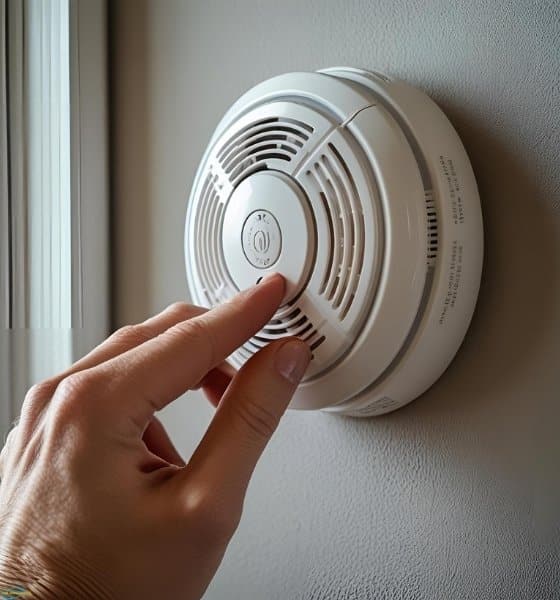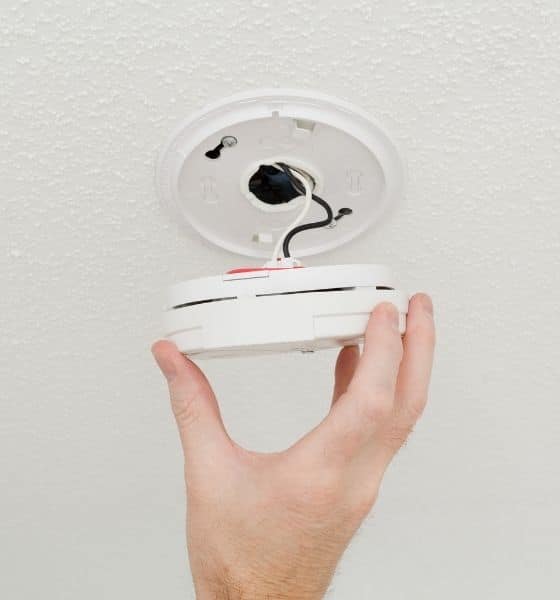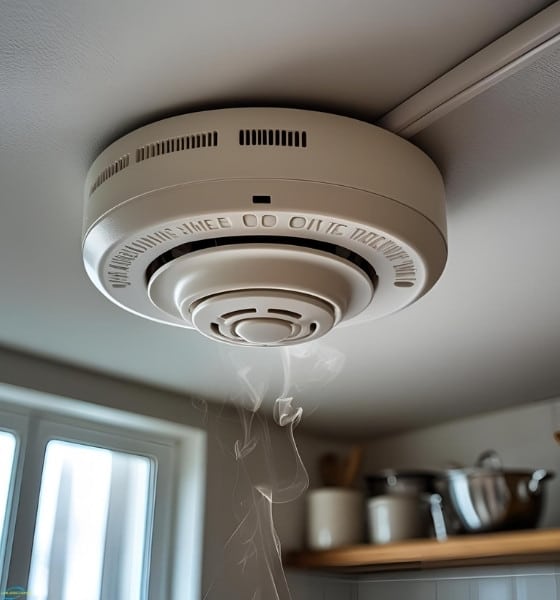Smoke Alarms: Why they must be Installed and Working in your Home?
Smoke alarms play a crucial role in ensuring the safety of ourselves and our families in the event of a fire. While this may seem like common sense, it is important to be aware that legislation exists in both NSW and ACT, which mandates the installation and proper functioning of smoke alarms in all buildings where people sleep.
Complying with this legislation ensures a minimal level of protection from fire. However, it is also important to take additional precautions around the home to reduce the risk of fire, such as cleaning gutters regularly, as discussed in a previous article.
The Significance of Smoke Alarms:
Types of Smoke Alarms

Photoelectric and Ionisation Alarms:
- Photoelectric alarms are considered more advanced and superior to ionisation alarms. They have the ability to respond more quickly to fires and are less likely to cause false alarms.
- Photoelectric alarms are particularly effective at detecting smouldering fires, providing early warnings for small developing fires. You can identify a photoelectric smoke alarm if it lacks the radioactive warning symbol found on ionisation smoke alarms.

Hard-Wired and Battery-Powered Alarms:
- Smoke alarms are available in both hard-wired and battery-powered versions.
- Hard-wired smoke alarms, preferably interconnected, are highly recommended by Fire & Rescue NSW. When one alarm detects smoke, all interconnected alarms in the house will sound, providing faster warnings throughout the entire property.
- If hard-wiring is not feasible, photoelectric smoke alarms powered by 10-year lithium batteries should be installed. These batteries last as long as the smoke alarm itself, eliminating the need for regular battery replacements.

Specialized Models:
- Smoke alarms are designed for specific purposes, such as kitchen use, caravans, and meeting the needs of individuals with special requirements, such as the hearing impaired.
- Some models even come with emergency lights, providing additional visibility during fire emergencies.
How Many Smoke Alarms should I Have in my Home?
Hard-Wired or Battery Operated?

The Doctor is Here to Help!
If you require assistance with the installation of smoke alarms, our team of electricians is ready to serve you. Simply give us a call, and we will arrange for a professional to visit your home or property and ensure it is adequately protected in the event of a fire. Our services cover areas in Canberra, Newcastle, Central Coast, Hunter Valley, Lake Macquarie, and Port Stephens.
By prioritizing the installation and maintenance of smoke alarms in your home, you are taking a crucial step towards safeguarding your family and property from the devastating effects of fire. Stay proactive and stay safe!
THE DOCTOR GETS IT DONE
